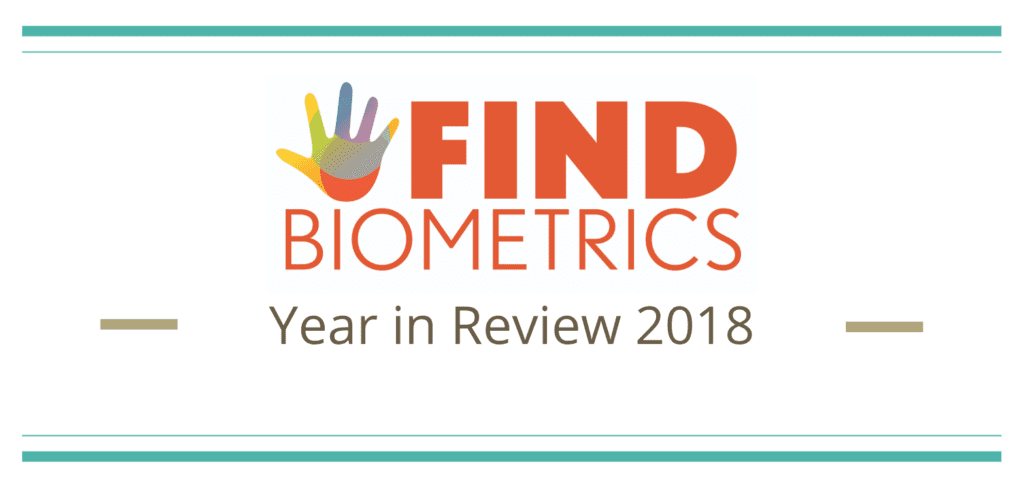
The FindBiometrics Year in Review is the longest running biometrics industry survey, providing insight into the top trends in the ever-evolving identity marketplace. In this guest post, biometrics expert Mark Clifton highlights some of the survey’s most notable findings.
These survey results underscore the intersection between biometrics and some major technology disruptions in today’s world. Biometrics technology touches many realms, such as Artificial Intelligence (AI), data privacy, cybersecurity, password elimination, seamless cross-border travel, and most of all, secure and frictionless opening of our mobile devices. The survey also highlights areas of concern as well as hope for the future of biometrics.
After reviewing the results, I found that several of the responses are in direct opposition to one another. For instance, one response demonstrated widespread agreement that privacy was a large concern for biometric adoption for consumers. Additionally, there was large agreement that digital and physical privacy are a fundamental human right. Furthermore, most participants thought that AI would make voice, speech and face recognition an integral part of our lives. These views, however, stand in stark contrast to one another. Let me explain.
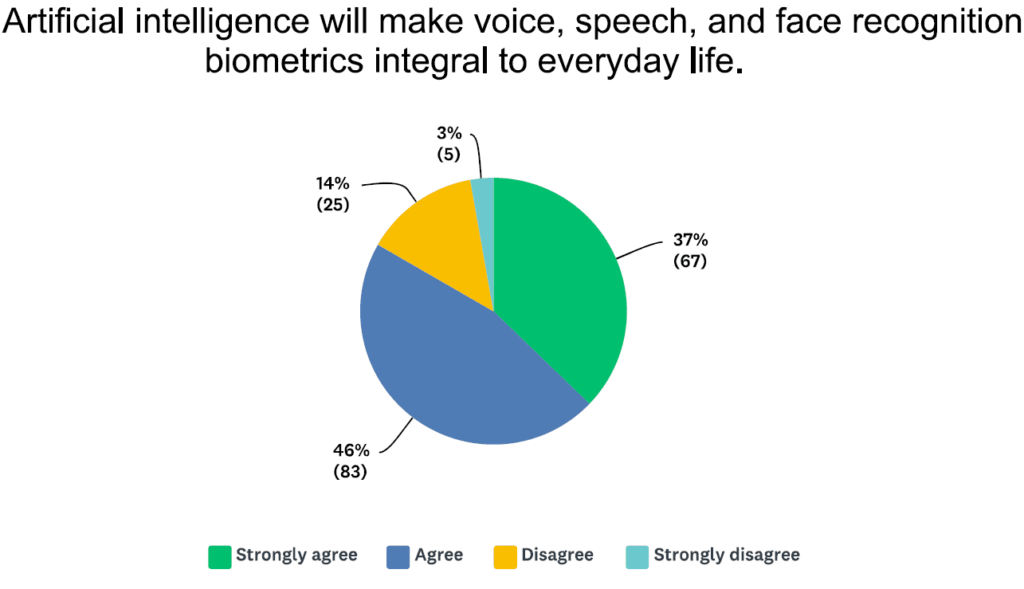
Early machine learning researchers (Facebook, Apple, Amazon, Google, Microsoft) discovered that as they added more datasets to neural computer networks, they reached an inflection point in the accuracy of the result. This inflection point varied by data application, but in general they needed troves of data in order to improve machine learning. Thus, these companies became massive data collectors. At the same time, these collectors also found a lucrative market by selling the same data to advertisers, political groups, credit bureaus and so on. Therefore, data had dual purposes; improvement of the services the company offered and a new revenue stream for data harvesters.
Unfortunately, the later purpose has been used for privacy invading and unethical purposes (surveillance, voter manipulation, etc.). In response to the exploitation of data collection, we are seeing laws being developed to limit the acquisition and sale of this data (California, Oregon, Rubio in the US Senate, GPDR in Europe). While these laws may accomplish the restriction of the sale of data, they will also serve to limit the data available for AI improvement purposes. Consequently, two fundamental issues have emerged: Will AI continue to improve if the data sets become limited? And do we as users have to give up privacy to get AI improvements? These questions will come to the forefront in the months to come in 2019, and the tech industry will have to make some hard decisions regarding the collection and sale of data.
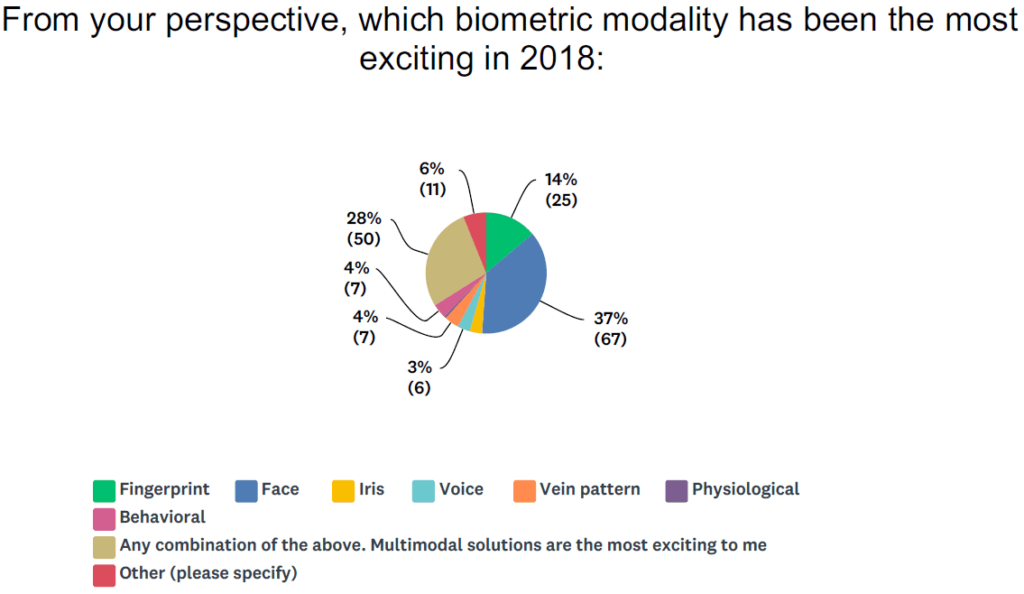
The survey results also validated the mass adoption of facial recognition. Why? Facial recognition has become 10 to 20 times better with the use of deep learning, it’s easy, and in many cases it’s free (OpenFace). While it works well in certain applications it has been shown to have some significant limits as well. Not all AI based facial recognition systems are the same. However, they are all dependent on the data set that is used to train the neural network. Thus, we regularly see where many of the deployed systems have built in biases. Because of the characteristics of AI systems, researchers at Carnegie Mellon built spoofing eyeglass frames, experts at MIT fooled a system by adjusting one pixel, and a professor at the University of Toronto has built a real time face filter for your facial pictures that inhibits recognition with just some slight adjustment to some facial pixels. Additionally, reports of deployed systems without liveness detection are rampant. Spoofing a system with a picture or 3D mask just shouldn’t happen, and when it does it hurts the credibility of the entire industry.
On a more positive note, the strong showing of multimodal biometrics is encouraging. Multimodal is basically the use of more than one biometric to determine the identity of a person. These types of systems can be frictionless for the user, achieve unbelievable levels of accuracy, make spoofing nearly impossible, and provide for multi-level security. For instance, to open your phone, facial recognition may be enough. On the other hand, performing a thousand-dollar transaction may require face, voice, and fingerprint. A software platform that can adapt to multiple modalities to perform a frictionless authentication is the ticket moving forward. It is the combination of the easiest and most accurate, vetted and tested modalities that will win the day.
In summary, the FindBiometrics Year in Review survey serves as a useful tool to help businesses assess their current status and their way ahead. I found it quite educating and confirming.
– Read the FindBiometrics Year in Review results and analysis here –
—
January 31, 2019 – by Mark Clifton, CEO, Founder & Entrepreneur
About the author: Mark Clifton is currently helping companies with business strategy, marketing strategy, and market analysis in the burgeoning biometric authentication industries such as security, fintech, IOT and healthcare. He was the CEO and co-founder of Princeton Identity, the company making biometric identity management more convenient than ever before. Mark brings extensive experience in biometrics, security and surveillance, resulting in a deep understanding of the authentication technology and solutions the market needs. With Princeton Identity, Mark was bringing biometric identity management products to businesses, global organizations and borders, resulting in improved safety and protection for various industries and audiences. Princeton Identity’s iris recognition technology is featured in the Samsung Galaxy line of mobile smart phones, where tens of million phones have been sold to consumers. Additional deployments of Princeton Identity’s biometric authentication devices include Dubai airports as well as several Fortune 100 companies.
Prior to founding Princeton Identity, Mark was President of the Products and Solutions division at SRI International, where he was responsible for technology development, strategic direction and moving technology out of the laboratory and into the market. Before SRI, Mark held leadership positions with C2 Systems for the Army, radar and sonar systems for the Navy and acoustic systems for submarines. He is an accomplished leader with over 30 years of experience in engineering, business management, and business development in both the commercial and government security and surveillance markets.
Mark holds a M.S. of Engineering from University of Connecticut and a B.S. of Engineering from Florida Atlantic University.





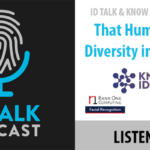
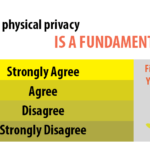
Follow Us